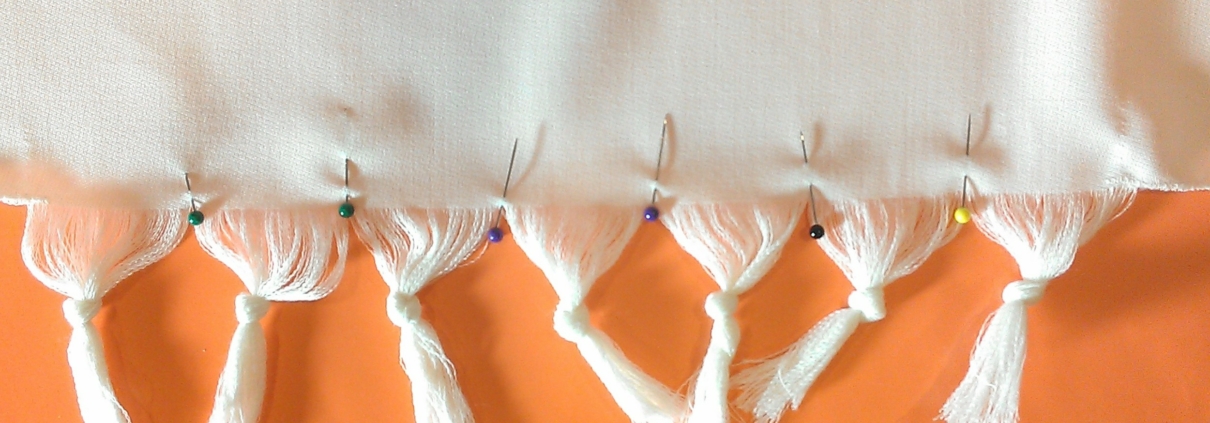The fringes of your life
I recall in the 1960s when fringes were all the fashion. In their essence, fringes are threads that move loosely. Whether an adornment for beaded moccasins or brocade draperies, the imperfect fringes were understood to enhance beauty. Fringes are a contrast to the smoothness of the adorned material. It seems that imperfection can be used to enhance beauty.
Fringes are also an ancient design. In parashat Ki Teitzei we get this instruction: “You shall make tassels on the four corners of the garment with which you cover yourself.” Why adorn a garment with tassels? The tassels are a reminder that the seeming perfection of a garment can best be appreciated with adornment of something that appears as if frayed. Previously in Torah we learn that tzittzit [fringes] are for you, and when you see it, you will remember all the commandments of G‑d to perform them (adapted from Numbers 15:38–40). How interesting that something that is seemingly imperfect gives us the impetus to strive for holiness.
The same theory applies in another later instruction. We are told to leave something unfinished when constructing a home. The custom is called zeicher l’churban and it comes from the Talmud (Baba Batra 60b) directing that we leave a cubit without stucco or without paint. The reason is so that we remember that the beit hamikdash, the holy temple, was destroyed. With the pride of constructing a beautiful home, we stop to notice what remains imperfect in our lives – be it fringes or a cubit of a wall without stucco. In noticing imperfection we are reminded of something holy.
As we approach the High Holidays, we are directed to notice what is imperfect in our lives. What are the fringes you have added to the fabric of your life? Perhaps you’ve made an error regarding how you treated your family, or a failure to take care of your health. These imperfect fringes can serve to enhance beauty by the contrast of their imperfection. For example, did the distance created with a family member make you appreciate the relationship all the more? Or have you come to value good health more because of an episode of self-neglect?
Even as they are imperfect, you can notice the fringes of your life so that they serve a purpose. In noticing them, you may be moved toward enhancing holiness. The role of the High Holidays is not merely to take stock of imperfections. The High Holidays help us to improve our lives by engaging with imperfections as if they are a talisman of holiness. See them and remember to make improvements in yourself and the world.
Rabbi Evan J. Krame






 Evan J. Krame was ordained as a rabbi by the
Evan J. Krame was ordained as a rabbi by the